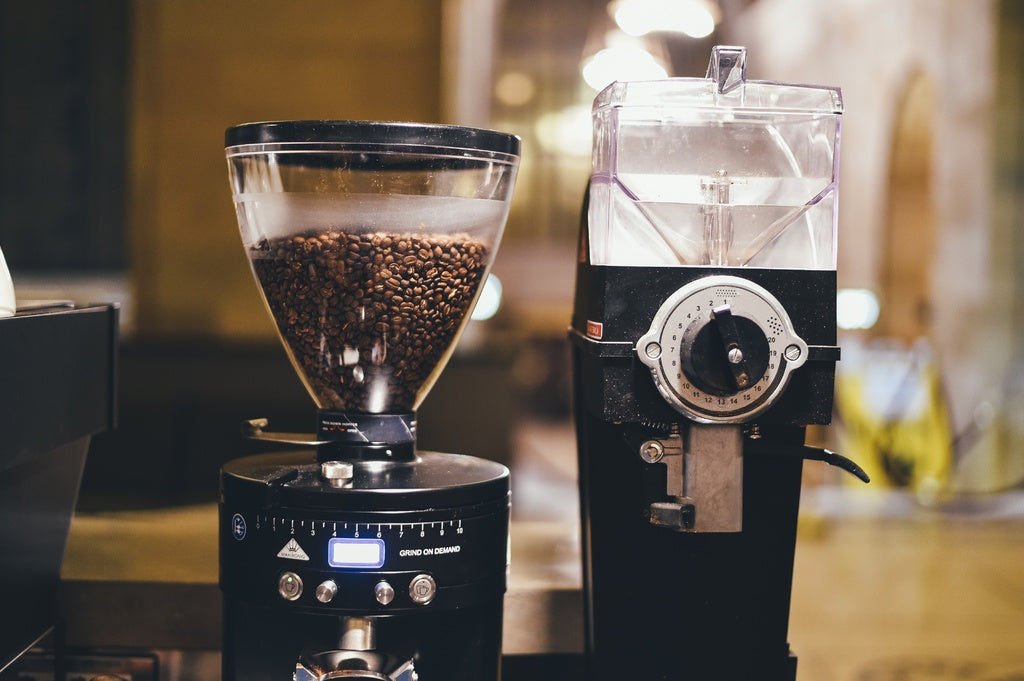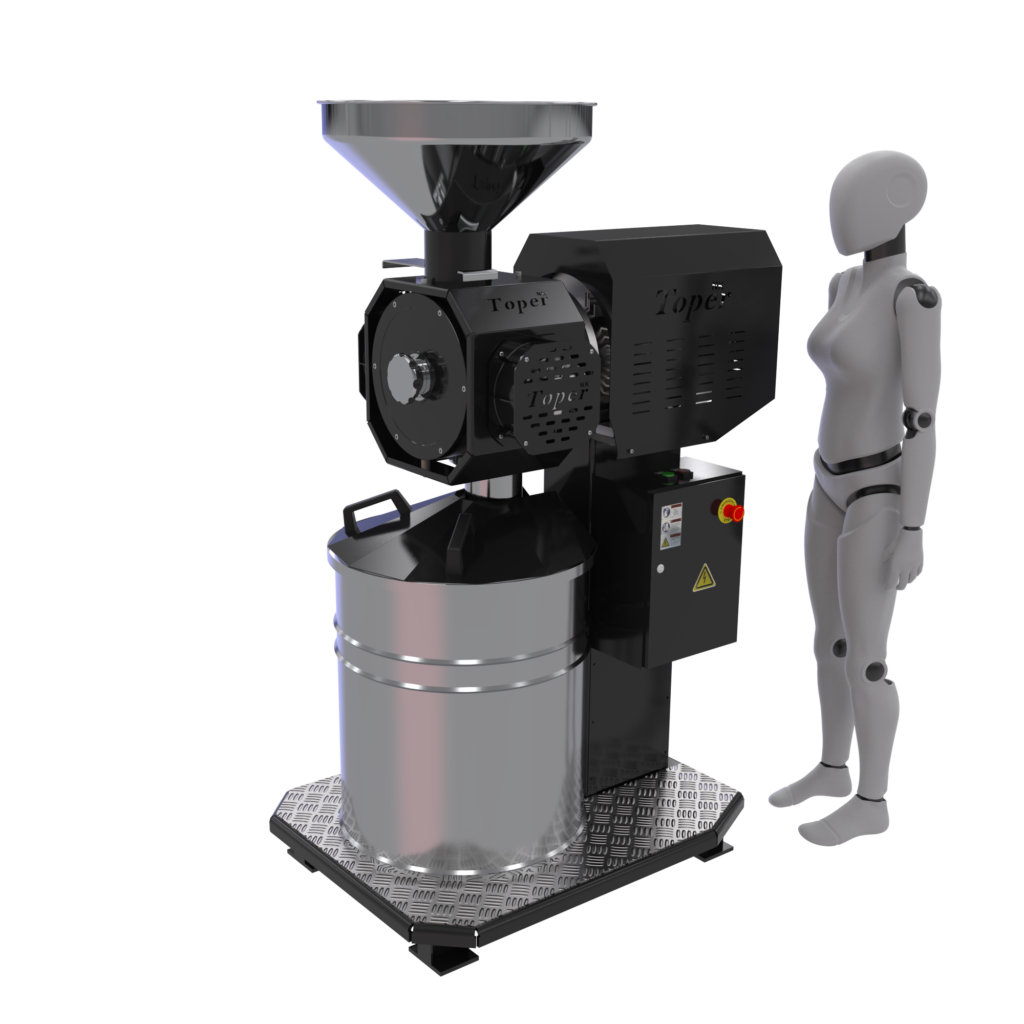Exactly How to Pick the Perfect Industrial Coffee Grinder for Your Company
Selecting the optimal commercial coffee mill for your business is a diverse choice that calls for mindful factor to consider of several vital variables. In addition, understanding the various types of grinders offered can substantially affect your functional performance.
Assess Your Grinding Demands
When selecting an industrial coffee grinder, one should first evaluate their grinding requirements to make sure ideal efficiency and uniformity. This preliminary examination entails recognizing the quantity of coffee to be refined daily, in addition to the preferred grind size for various brewing methods. A high-capacity mill might be essential for organizations offering big amounts of coffee, while smaller operations might find an extra portable design adequate.
Additionally, it is important to think about the sorts of coffee beans being utilized, as different beans may require details grinding strategies to accomplish the finest flavor account. Oily beans might demand a grinder made to manage such characteristics without overheating or clumping.
Specialized coffee companies frequently require specific grind dimensions to boost extraction and taste, making it essential to choose a mill that can supply consistent outcomes. Assessing the offered area and electrical needs will certainly assist in picking a mill that fits effortlessly into your functional operations.
Understand Grinder Types
Understanding the numerous sorts of commercial coffee grinders is critical for making an educated choice that satisfies specific functional needs. There are mainly 2 classifications of mills: blade grinders and burr mills.
Blade mills use spinning blades to slice the coffee beans, resulting in an irregular work size - Industrial Coffee Grinder. While they may be much more budget friendly, they are usually not ideal for industrial applications where precision is crucial
On the various other hand, burr grinders give a much more uniform grind by squashing the beans in between two surface areas. They can be further categorized into flat burr and conelike burr mills. Flat burr mills provide a consistent grind dimension and are typically preferred for coffee preparation, while cone-shaped burr mills are flexible and can manage a variety of brew techniques, from espresso to French press.
When picking a mill, take into consideration the specific needs of your service, consisting of wanted grind uniformity, manufacturing quantity, and the kinds of coffee drinks you intend to provide - Industrial Coffee Grinder. Each mill type has its limitations and benefits, so comprehending these nuances enables informed decision-making that straightens with operational goals
Evaluate Work Dimension Uniformity
Accomplishing grind size uniformity is vital for creating top notch coffee, as variations in particle size can dramatically influence extraction and flavor. When picking an industrial coffee grinder, it is crucial to examine just how well the maker preserves harmony in grind size throughout various sets. Irregular grind sizes can lead to uneven extraction, causing a mug that may taste extremely bitter or weak.
To evaluate grind size consistency, take into consideration grinders with features such as adjustable work setups and top notch burrs. Burr mills, in particular, succeed in producing uniform bit sizes contrasted to blade grinders. The product and shape of the burrs play an important duty, with stainless steel and ceramic choices offering toughness and precision.

Consider Manufacturing Capacity
In the hectic world of coffee manufacturing, thinking about manufacturing ability is vital for organizations intending to fulfill need without compromising high quality. The manufacturing ability of a commercial coffee grinder directly affects a company's ability to fulfill orders effectively, handle supply, and react to rising and fall market trends.
When examining production capability, it is important to evaluate the grinder's outcome price, typically determined in extra pounds look at this web-site per hour. This measurement should align with your service's forecasted sales quantity and development targets. As an example, a café with a high turnover might require a grinder that can refine a number of hundred extra pounds daily, while a smaller sized operation could be adequate with a lower capacity model.
Additionally, think about the sort of coffee being her comment is here refined. Various beans and blends may influence grinding speed and efficiency, demanding a mill with the ability of handling varied production requirements. It's likewise worth considering the grinder's ability to maintain constant high quality under high outcome conditions, as any fluctuations can influence the end product.
Eventually, picking a mill that matches your business's production capability will certainly ensure you continue to be receptive and affordable to consumer assumptions.

Budget Plan and Upkeep Aspects
When reviewing the right industrial coffee maintenance, grinder and budget plan variables play a significant duty in the overall decision-making procedure,. A preliminary financial investment in a top quality mill can yield long-lasting benefits, yet it's important to develop a clear budget plan that straightens with your service's operational needs. Consider both the acquisition price and prospective operational costs, such as energy intake and replacement components.
Industrial coffee grinders require regular upkeep to make certain ideal performance and durability. Check Out Your URL Evaluate the maker's recommendations for maintenance, including cleansing routines and parts substitute, as these will influence long-lasting operational prices.

Purchasing a grinder that is long lasting yet very easy to keep can conserve money over time. While lower-priced choices might be appealing, they might incur higher maintenance costs and lowered performance. Eventually, stabilizing first expenses with long-term upkeep and functional effectiveness will certainly assist you to the ideal selection for your service's coffee grinding requirements.
Conclusion
Selecting the excellent commercial coffee mill requires a thorough evaluation of grinding requirements, grinder kinds, grind size consistency, production ability, and monetary factors to consider. An appropriate mill not just boosts the quality of the coffee created yet additionally adds to the overall success and earnings of the business.
Specialty coffee businesses typically require specific grind dimensions to boost extraction and taste, making it essential to pick a mill that can provide uniform results. Apartment burr grinders offer a consistent work dimension and are usually favored for coffee prep work, while cone-shaped burr grinders are functional and can manage a variety of brew approaches, from espresso to French press.
When selecting a commercial coffee grinder, it is essential to evaluate just how well the device maintains harmony in grind dimension across different sets. Burr grinders, in certain, succeed in creating uniform particle dimensions compared to blade mills.Choosing the optimal industrial coffee grinder demands a thorough analysis of grinding requirements, mill types, grind dimension consistency, manufacturing capacity, and monetary considerations.